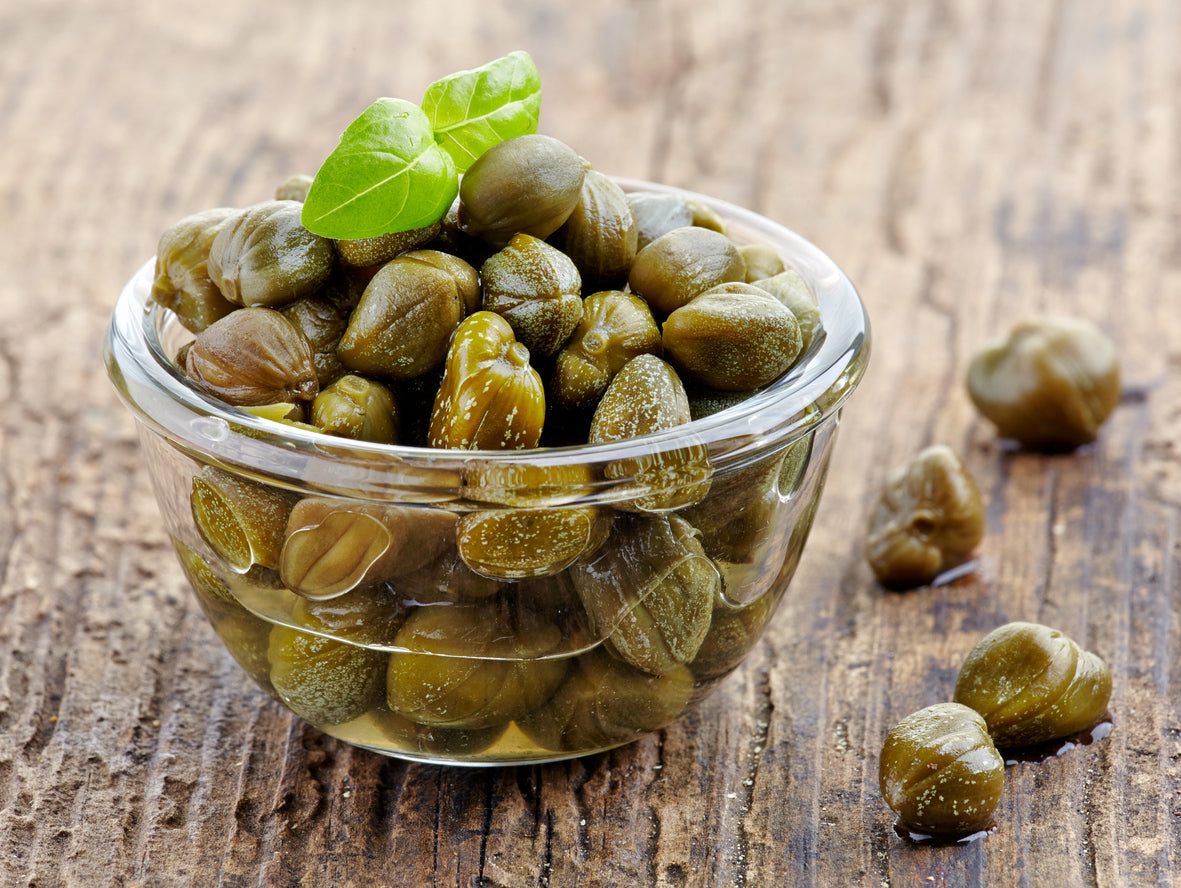3 compelling reasons to add capers to your diet

Capers, the pickled flower buds of the bush botanically known as Capparis spinosa, have a chewy consistency and a piquant, salty tang reminiscent of green olives. Highly prized as a seasoning in Mediterranean cuisine, capers lend their distinctive flavor to chicken piccata, smoked salmon recipes and a variety of other tempting dishes. Although these tasty buds are given an important role in up-to-the-minute recipes at fashionable gourmet restaurants, they are an ancient food. In fact, humans have been consuming them since the Stone Age!
Not only are capers used to accent many nutritious, healthful dishes, but they offer disease-fighting benefits of their own. Let’s look at three of the most intriguing.
Capers may improve non-alcoholic fatty liver disease
The incidence of non-alcoholic fatty liver disease (NAFLD) - excess fat in the livers of people with no history of alcohol abuse - is surging in the United States, with experts at the Mayo Clinic estimating the prevalence at up to 30 percent of Americans. While NAFLD can be mild, it can sometimes progress to more serious conditions - such as cirrhosis, liver failure and liver cancer. Now, it turns out that capers may help ease this unwanted illness.
Capers have a long history of use in the Ayurvedic healing system as a tonic to support, nourish and cleanse the liver - and modern research seems to support the ability of capers to act against liver disease. In one clinical trial involving 44 adults with NAFLD, participants who ate capers with their meals for 12 weeks experienced reduced disease severity and a decrease in markers of liver inflammation.
Capers may improve type 2 diabetes
Capers have also been used in herbal and folk medicine to reduce high blood sugar levels. And, again, research appears to confirm the value of this natural remedy. For example, a placebo-controlled study published in Complementary Therapies in Medicine showed that a caper extract was effective at lowering blood sugar in patients with type 2 diabetes. The scientists found that the caper group enjoyed a significant decrease in fasting blood glucose levels, along with a decrease in levels of triglycerides (fats) in the blood.
In addition, capers contain dietary fiber. By helping to create a feeling of fullness, fiber may reduce overeating, thereby fighting overweight and obesity (known risk factors for type 2 diabetes).
Capers reduce heart disease risk
Capers also contain vitamin K, which has been shown to work against atherosclerosis by discouraging calcium build-up in major arteries. In a new study published in the Journal of the American Heart Association, people with the highest intakes of vitamin K1 - the type found in capers - were up to 21 percent less likely to be hospitalized with heart disease related to atherosclerosis. And, early studies have supported capers’ ability to lower harmful LDL cholesterol while raising beneficial HDL.
Capers also contain many of the same “good guy” antioxidants and anti-inflammatory compounds - such as quercetin, rutin, kaempferol, epicatechin and proanthocyanidins - that are found in other plant-based superfoods. These antioxidants can help prevent oxidative damage and disease caused by harmful free radicals. Finally, there is some evidence that capers can prevent the formation of advanced glycation end products (AGEs) which result from consumption of grilled or charcoaled fatty red meats. These harmful byproducts have been linked to increased risk of cancer and heart disease - so the ability to reduce them is yet another testament to capers’ heart-healthy qualities.
“A little goes a long way” with nutrient-rich capers
You can employ the rich, tangy flavor of capers in recipes for seafood, pasta, chicken and beef, along with soups, marinades and stews. Or use them to accent deviled eggs, olive tapenade, salads and salsa.
And, here’s the really good news: you don’t need to gobble a heap of capers to get the benefits. Their effects are so potent that even the small amounts traditionally used in recipes can carry benefits. This is fortunate, because a tablespoon of capers contains almost 10 percent of the recommended daily intake for sodium. Capers should be eaten in moderation - especially by those with high blood pressure.
(Pro tip: to avoid “salt overload,” you can soak capers for three to five minutes, then strain them and use. This method reduces salt in capers without harming their appealing taste).
There’s no doubt about it – small-but-mighty capers pack a powerful punch against disease, while elevating recipes with their bold, sophisticated flavor. Capers, in judicious amounts, make a great addition to your healthy diet.
Sources for this article include:
-
Posted in
antioxidants, benefits of capers, healthy seasonings, heart disease, nafld






